 The Hero
The Hero
What Was A Hero In Anglo-Saxon Culture?
In Anglo-Saxon culture, concepts like being a ‘good king’ and being a brave warrior were important. This is evident in the literature that was written during this time period, which focuses on very narrow and concrete ideas of what a leader and a hero meant in such a society. These concepts served to define standards for what a king and a soldier should do for their tribe, many of which were built around the need for protection from warring tribes.
War was a cultural reality for Anglo-Saxon tribes. These were wars that were fought close-to-home, and usually meant that the losing tribe would be conquered and made property of the winning kingdom (its citizens made slaves). Losing a war meant losing land and freedom; it was a true threat to any way-of-life. Winning a war meant expanding a kingdom, taking on riches, and honoring the name of the king. A king’s job was simple- keep the tribe from warring (or at least on the winning side), share the riches with one’s kinsmen, and honor those who honor you. A king who was a good king, like Scyld Scefing, Hrothgar, and Beow, and Beowulf, is honored and remembered even in death. A good king is always seen as a hero even if, in the case of the epic poem Beowulf, he does nothing particularly heroic. For example, King Hrothgar (even in his old age) does not face Grendel in battle even though his hall is attacked for many years. Although the text suggests that Hrothgar was beloved more because of his wisdom than courage, it is part of the “comitatus”- the warrior code- that a hero be courageous. The assumption is that because he is a good king he must also be a leader to be worthy of service, and because he is a leader he must also be a brave warrior and a hero.
A hero, if he is a soldier or warrior, and thus makes his life about serving his hero-king, must then exemplify the attributes of his king. This is evident in “The Wanderer”, which is a lament about a soldier/warrior who is lost without his king and fellow soldiers. The speaker is loyal to, and identifies with, his king, even though the kingdom is no more. His loyalty is tied to his king; he is a hero because he king was one. Indeed, with the king as a head of the society, dictating what is and isn’t heroic, all moral judgments stem from one’s allegiance or betrayal of the heroic code. Allegiance to such a code meant that a warrior would be served well during his life, and blessed in his afterlife; betrayal often meant bringing a tragedy onto one’s entire kingdom. In Beowulf, Hrothgar’s hall Heorot endures attacks from Grendel, and is destroyed in a conflict between Hrothgar and his son-in-law who betrays him. Hrothgar also has in his allegiance a warrior named Unferth who is accused of fratricide, or having slain his brother, which is the worst crime an Anglo-Saxon warrior could commit. It is hinted that Hrothgar’s court must pay for those within it who have broken the heroic code laid out by their king. Beowulf proves time and time against to be the true successor by continuing to fulfill this hero’s code through bravery, loyalty, intelligence, and leadership and political skills.
These are some of the more popular images of Beowulf: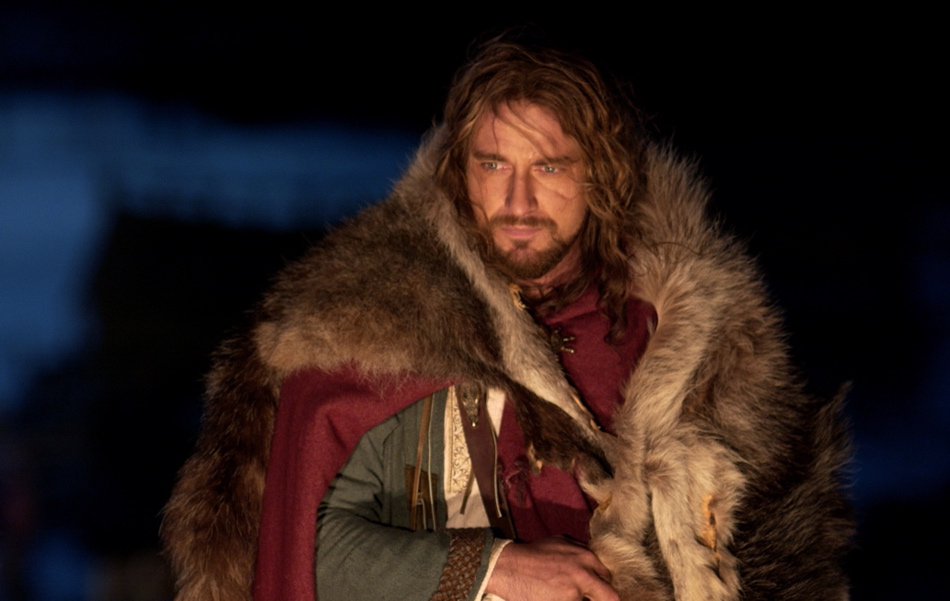 (Beowulf and Grendel)
(Beowulf and Grendel)
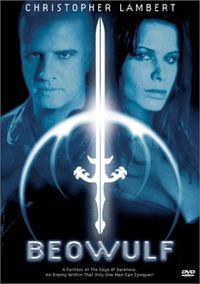 (Photos from Beowulf)
(Photos from Beowulf)
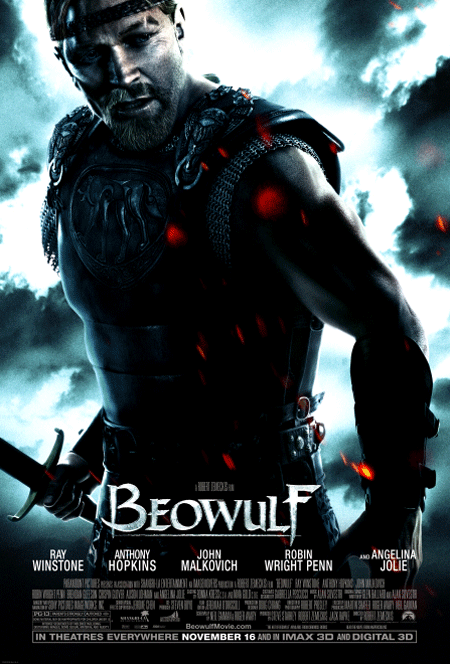 (Beowulf)
(Beowulf)
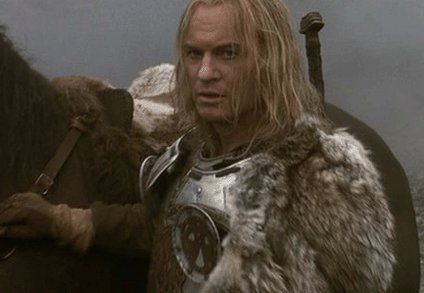 (The Thirteenth Warrior)
(The Thirteenth Warrior)
When one followed the hero’s code there were certain expectations. Much as Hrothgar creates Heorot to honor himself, Beowulf expects upon death to have a hall (called “Beowulf’s Barrow”) created in his name. Part of being a hero is being remembered and honored in death. Since so much of Anglo-Saxon culture surrounds feasting and celebration after winning wars, a hall is a great place of joy. In fact, one of the religious beliefs during this time was that after death warriors could expect to feast and be joyful in a hall with their king. The hall was a right exclusive to a king, but also, in such honor, a hero could expect to have their tales be told for many years to come. Beowulf himself retells his heroic tales to his soldiers before he goes into battle with the dragon; this can be seen as Beowulf taking the last opportunity (now as king) to pass on the importance of the hero’s code.
The definition of what a hero meant in Anglo-Saxon culture was a concept that was important to defining kings and warriors, but it also encompassed very concrete skills and characteristics. These ideas were important because they were necessary characteristics for a war-based and power-based society. However, it was also a society that was deeply concerned with the bonds formed between the people within it.
Icons Cited:
(Sword and shield) About.com "Medieval History: Medieval Clip Art." 10 May 2008. http://historymedren.about.com/library/weekly/aa061898.htm
(Silver dragonhead) Draconian.com "Dragon Animations" 10 May 2008. http://www.draconian.com/artwork/anim/animation.htm
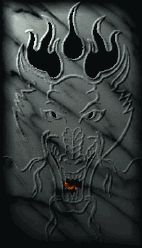 Return to Main Page!
Return to Main Page!